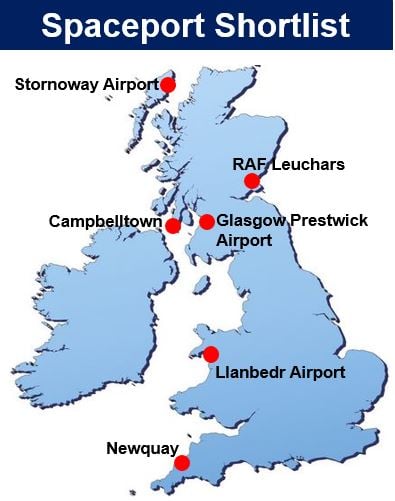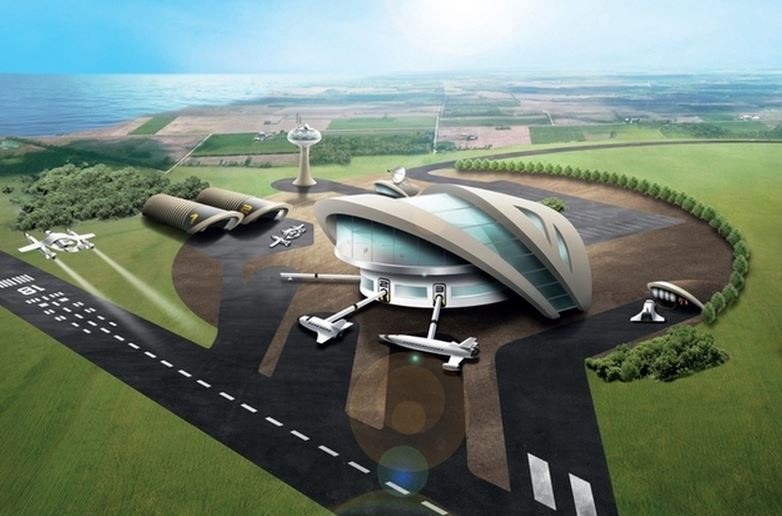The UK Government plans to have a British spaceport operational by 2018, with commercial space flights taking off and landing at prices starting at ₤58,000 per passenger. Flights to Australia, for example, will only take 2 hours using state-of-the-art spacecraft.
Earlier this week, the UK Space Agency announced that the Government supported making commercial spaceflight operations a reality in Britain, after publishing its spaceport consultation.
The Agency predicts that the first European spaceport will be built in the UK.
With the Government’s “widespread support”, Britain is well on the way towards becoming a world leader in spaceflight operations, the UK Space Agency wrote.

Data Source: UK Space Agency.
The CAA (Civil Aviation Authority) made a shortlist last year of potential spaceport locations. This list has recently been updated and now includes six possible sites:
1. Newquay, in England.
2. Llanbedr in Wales.
3. Stornoway, Glasgow Prestwick and Campbeltown in Scotland.
4. RAF Leuchars in Scotland. (A potential temporary facility).
Two RAF (Royal Air Force) airfields – Lossiemouth and Kinloss Barracks – have been ruled out for defence and operational reasons.
Other locations can still be submitted, the UK Space Agency said, as long as they meet the stipulated requirements.
Several factors will be taken into account before the final decision regarding the location for Britain’s first spaceport is made. The number one priority, the Agency said, is protecting the general public from danger and inconvenience.

Private citizens will be able to fly from the spaceport into outer space. (Image: UK Space Agency)
The spaceport will be built near to the sea so that urban areas and the general public overall are protected from potential rocket disasters, the Government said.
“The Government notes that there will be particular environmental impacts associated with development at a coastal location, and we shall consider these as we develop the detailed specification.”
Aviation Minister, Robert Goodwill, said:
“I want Britain to lead the way in commercial spaceflight. Establishing a spaceport will ensure we are at the forefront of this exciting new technology.”
“Today’s consultation response marks another step forward in our work to support this emerging industry, which will create jobs and drive economic growth.”
Secretary of State for Business, Innovation and Skills, Vince Cable, said:
“Paving the way for a national spaceport is one of our biggest science achievements in this parliament. It greatly underscores the work of our space innovation and growth strategy to position the UK as a world-leader in this exciting arena that is expected to be worth up to £400 billion a year to the global economy by 2030.”
“Launching satellites and operating commercial space flights from our shores was once only confined to the depths of science fiction, but with the results of this consultation we are one step closer to making this a very real ability in the near future.”
The Department of Transport and the UK Space Agency told the Department of Transport to review the regulations and operational environment to allow space travel to operate in the UK.
Last year, the Government launched it space innovation and growth strategy to 2030, which underlined the commercial benefits for the country if it became the European hub for commercial spaceflight pioneers and scientific R&D (research and development).
